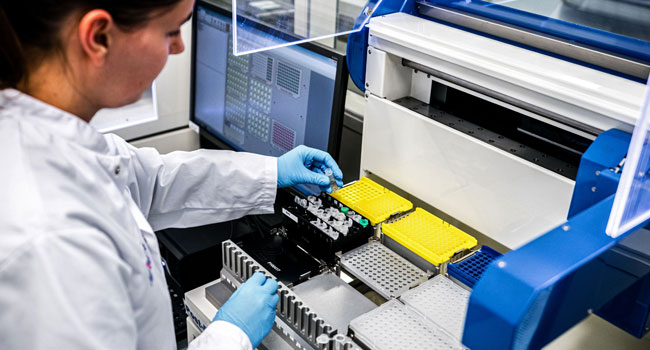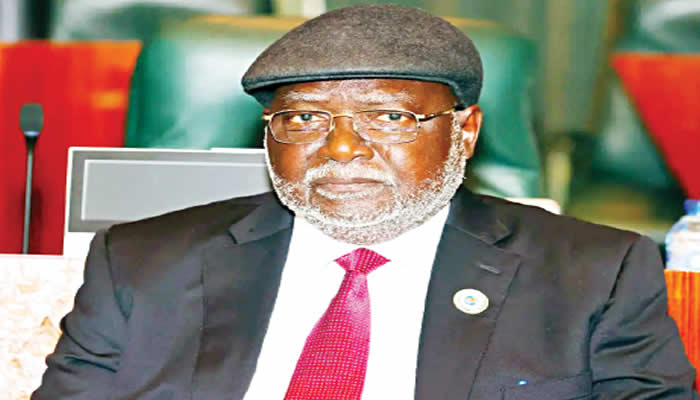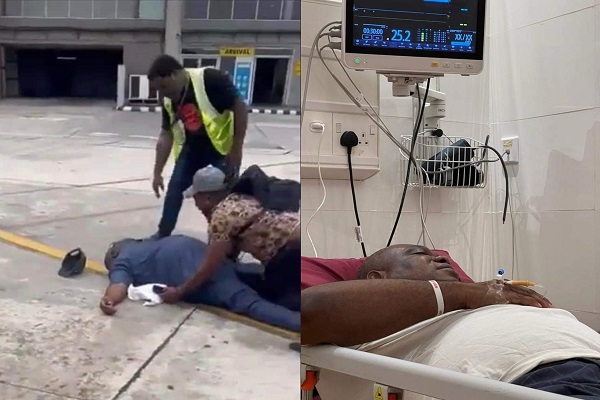Nigeria has recorded a breakthrough in the battle against coronavirus.
The Nigeria Centre for Disease Control (NCDC) has successfully validated the first phase of the viral Ribonucleic Acid (RNA) extraction which would enable local production of cheap testing kits for COVID-19.
On Thursday, the validation occurred in the laboratory of the National Biotechnology Development Agency (NABDA) in Abuja.
Prof. Alex Akpa, NABDA Director-General, told the News Agency of Nigeria (NAN) that the success was important to the African continent.
He said the development “shall enable us to massively produce test kits so that more people would be tested for COVID-19, not only in Nigeria but in Africa”.
Akpa disclosed that the immediate aim is to “produce reagents for real-time Polymerase Chain Reaction (PCR), and remember, recently the lack of reagents stalled work in Kano and molecular diagnosis could no longer take place.”
The DG recalled that the absence of the same reagent equally stalled COVID-19 diagnosis in Lagos for many days.
“This project is, therefore, designed to enable not only Nigeria but the whole of Africa to put the issue of shortage of reagents behind,’’ he said.
Akpa added that the project was a Pan-African project whose partners include Ethiopia, NCDC and the University of Sheffield, U.K., among others with funding to come from African Development Bank.
Speaking, Dr Ndodo Nnaemeka, Chief Molecular Bioengineer, National Reference Laboratory of NCDC, hailed the “wonderful project.’’
Nnaemeka said it was designed to solve the problem of RNA extraction kit which had become a global issue.
The official noted that there were serious concerns for the need to have more extraction kits in-country and that there was growing demand worldwide for extraction kits.
“The western world prioritizes their own interest first by making sure that they meet their local needs before exporting to other countries, so there was really need for it,’’ he said.
Nnaemeka recalled that the first phase of the evaluation results he carried out with the NABDA scientific team was “awesome and successful.’’
“The kits compete favourably well with other international kits we are using, in fact, it scored highly in purity and in quantity of extraction and we are thinking of scaling production,’’ Nnaemeka said.
The molecular expert clarified that to be able to conduct test, the viral information which comes as the RNA has to first be extracted and without this extraction, no test can be conducted.









